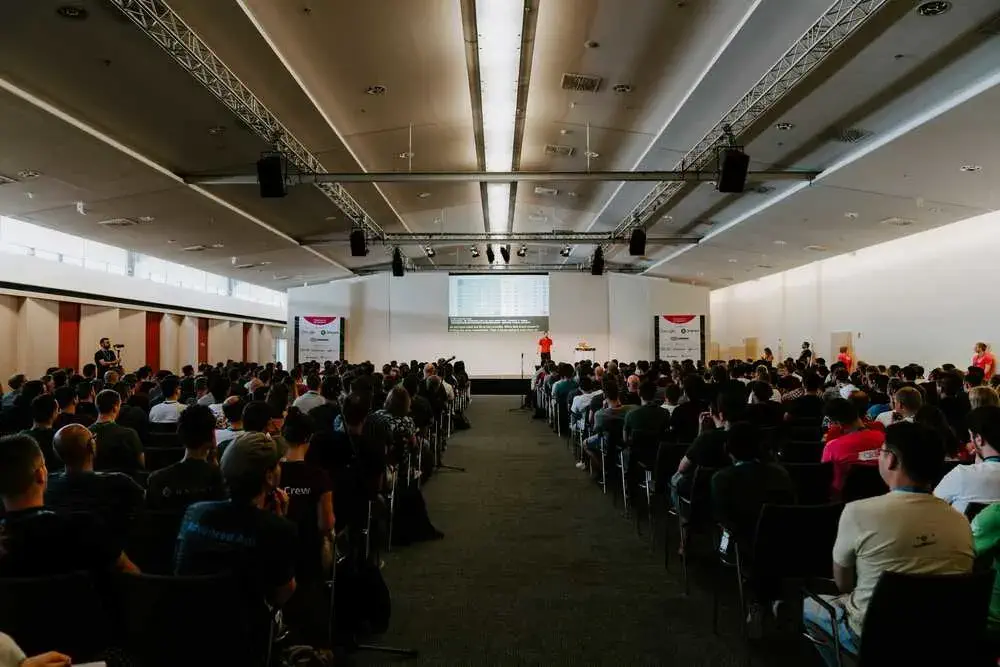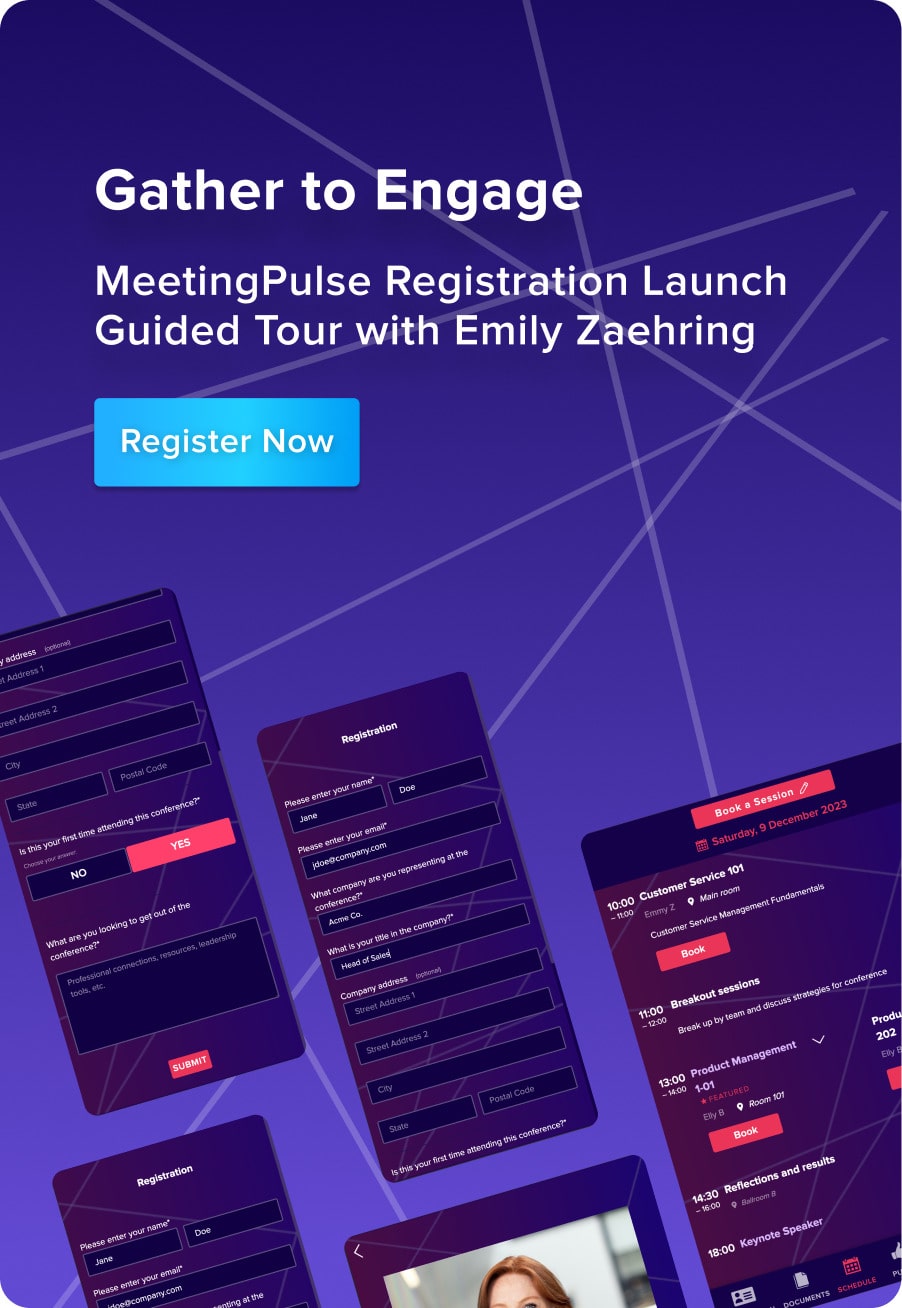Perhaps the most helpful event planning information you could have in hand is what your attendees are thinking and feeling. With the right set of pre-event survey questions, you can find out.
As more people attend virtual events regularly, it’s never been more important to get a pulse on what makes an event experience a good one. When it comes to having fun, less than 18% of virtual attendees in one study said a recent event was “very fun” or “super fun.” More than 42% reported having very little fun or no fun at all. Ouch. People attending in person reported almost the opposite, with more than 35% enjoying themselves quite a bit and 17% not having fun.1
That’s one reason that so many professionals use an event survey as they plan the details for gatherings. That valuable feedback makes it easier to create a memorable experience for your event attendees. And a successful event will make them more likely to come back for your future events.
Having repeat attendees means you’re doing something right. Using pre-event surveys to maximize attendee satisfaction should be a top priority when planning your next event. Similarly, the use of mid-event questions at any time during the event — especially at multi-day events — can help you keep your attendees happy. And post-event surveys can help you learn from your attendees’ experience to keep the cycle of success going.
Let’s talk about the best event survey questions to send out, and touch on how completing the event cycle with post-event survey questions can help you improve event satisfaction for everyone involved.
What can I achieve with pre-event survey questions?
The better question is: What can’t you achieve? All kidding aside, event planners can use pre-event surveys to gather feedback long before the event begins. There’s a great deal of valuable qualitative feedback to be gained and a variety of methods for doing so, depending on the live event survey platform you use.
You can ask about details, like preferred days and times, preferences for the event venue, keynote speakers and special accommodations, like food allergies and dietary restrictions. The point of the survey is to get information you can act on to help you achieve event success. Surveys also can pull in basic information that hosts can use to inform dynamic surveying during and after the event.
Using multiple-choice and open-ended questions will net the best return, and far more insight than a simple yes-or-no question will. An open-ended question, in particular, is a great tool for narrowing in on what your future attendees are thinking.
Surveys can be sent as far in advance as you need them to. If you’re hosting large corporate events, consider sharing the survey months in advance. A smaller or non-corporate event may only require a few weeks. It all depends on your needs and how soon you’d like to receive any event feedback.
And as far as distributing pre-event surveys, you’ve got plenty of options. You can use any already established marketing channels and social media pages, and send a survey link directly to any email addresses you’ve gathered during the event registration process. If you’re using an event app, that’s a great place to host surveys that are easily accessible to all. Tapping into the people who have completed the registration process — a post-registration survey, if you will — is likely to get a good response rate.
What are some great pre-event survey questions?
Here are some examples of questions you can ask your future attendees to gauge their interests and plan your event. With these questions, you’ll be letting them know that you respect their opinions and are looking to create an event that’s worthy of their time.
1. How did you hear about this event?
The answers to this question will let you know whether your marketing efforts are paying off. They could show you where they’re working best, or not working at all.
2. What are you hoping to get out of the event?
That’s right — ask them directly what they’re looking for. Knowing what they hope to see at the event enables you to make it happen, which will result in more engaged attendees and, hopefully, overall event success.
3. Which social media platform do you use the most?
This will let you know where your attendees spend their time online. You can use that insight to target your marketing efforts more specifically, and to develop your social media event strategy. If you would like information about specific social media platforms, make it a multiple-choice question and include as possible answers only those platforms. If, for example, a large number of respondents say they use Twitter most, you’ll know to create a hashtag to get them to engage online. That will help you spread the word about your event.
4. What speakers are you looking forward to the most?
This can help you plan a better schedule based on what seems to be your biggest draw. If an overwhelming portion of your audience is excited about a specific speaker, you’ll know not to schedule other events or activities during that time.
5. What would you like to see a breakout session used for?
Do your attendees want networking opportunities? Specific types of workshops or learning opportunities? Lectures? Ask them, and plan accordingly.
6. Do you have any special needs, requirements or restrictions we should be aware of?
This is a must-ask question, no matter the kind of event. This will help you make your event as inclusive as possible. Here’s another tip: Put this question on the registration form or otherwise incorporate it into the event registration process.
7. Is any event information difficult to understand or find?
This is a particularly valuable question for a new event or one that has undergone changes since the previous event. You might want to ask this after the event, too.
8. Have you attended this event before?
Find those first-timers. You can even follow up with more information for those who say it will be their first time. This can help you build a stronger connection at the outset and put them at ease as the event nears. On the flipside, this will identify your loyal attendees — also known as your target demographic.
9. Is the day/time/location of this event preferable?
We know you tried hard to pick a time and place that would work for everyone. Now is the time to find out if your planning paid off. If it didn’t, this information can help you determine a better time or location the next time.
10. Why do you want to attend this event?
This will give insights into what makes your event interesting. Is it your speakers, the location, the educational opportunities? Find out, and then use that info to your advantage.
11. Do you plan to attend the entire event? Or just a portion of it?
It will be interesting to see if people are only coming for a part of your event, because that points to the most valuable information or content, or the most popular draw. In future planning, this can help you to create more programming around what people value the most.
12. Is there any other information you would like to know?
It’s one of the ultimate open-ended questions. Who knows what your incoming guests will share with you? The answers to this question might need to go out to everyone who has registered. The information also could be useful to planners, vendors, and venue managers. You might learn things that deserve a spotlight in your promotional materials.
Connect with pre-event survey questions
The surveys are not just about gathering positive feedback, though. When you seek feedback, whether it’s through pre-event contact, a comment box or chat function, or a post-event survey, some answers might be tough to hear. But the information is incredibly valuable.
At MeetingPulse, we call it crowdsourcing the genius of your people. Event organizers are using MeetingPulse’s surveys, polls and other modules to maximize participation, knowledge retention, and engagement. You can use them at events like all-hands meetings, town halls, department rallies, Ask Me Anythings (AMAs), and more. Continue with your learning with 7 Virtual Attendee Stats to Help You Improve Audience Engagement.


















